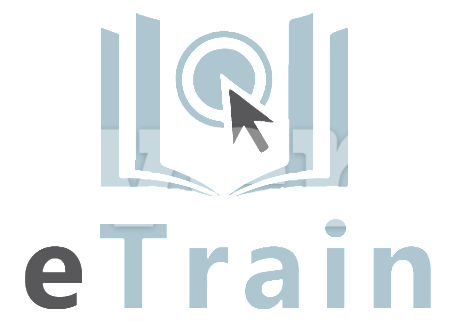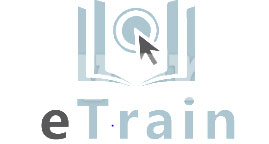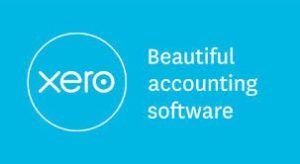Description
Explore the basic principles of bookkeeping in this lively and engaging online course. Discover the differences between single and double entry, and learn how to apply it practically within almost any business model. This fascinating course is an essential learning option for any employee looking to enhance their existing knowledge base and skill-set, and provide an all-important boost to their current career prospects.
All businesses have an accounting department, no matter what the nature of that business happens to be. Therefore, having at least a basic understanding and awareness of bookkeeping legislation and best practice is advantageous for anyone who currently works, or wishes to work, within a business or corporate environment.
Whether employed, self-employed or looking to change career paths, this course is ideally suited to students from a wide range of industries and educational backgrounds. Students do not need to have any formal qualifications or prior experience to enrol – all that is required are basic numerical skills, a valid ICB registration and most importantly, a passion for learning!
The course is accredited by The Institute of Certified Bookkeepers, the largest bookkeeping institute in the world. Their objective is to ensure that each member is equipped with all of the knowledge and skills they need to be able to provide their customers with the best possible service, enabling them to make their business stand out from the competition. Therefore, students registering with ICB for the first time have the reassurance of knowing that they will be educated to the highest possible industry standard.
What’s included:
- Online course – study on your laptop, tablet or phone.
- Full version of Sage 50.
- One year’s student membership to the ICB.
- Tutor Support.
- Practice assignments.
- Mock Exam.
- Final Exams.
- Interest free payments available.
- NUS Extra Card available (for small additional fee).
KEY LEARNING POINTS
- Learn the fundamental principles of single and double entry bookkeeping, and gain understanding of how to apply these skills whether working with a manual or computerised bookkeeping system.
- Gain essential knowledge and practical skills that can be applied across a wide range of industries and sectors, including sales, marketing, retail and manufacturing.
- Equips students with knowledge, skills and experience that can be applied whether working in an employed or self-employed capacity.
- Discover how to apply postings from books of prime entry, how to transfer postings from source documents to ledger accounts and how to produce an initial trial balance.
- Learn how to set up a computerised bookkeeping system within almost any kind of business model.
- Discover how to correctly enter all financial transactions, and understand how to use all the available and relevant information in order to produce accurate and up to date reports.
- The exam consists of 3 online assessments, all of which are taken in a specified order to ensure that the student has fully grasped each part of the course syllabus.
- Upon successful completion of the 3 online assessments, students are then qualified to work as an employed assistant bookkeeper, providing they perform their duties under appropriate supervision.
- Benefit from a flexible and innovative online learning solution that’s designed to appeal to the individual learning style of each student
- This online course is optimised for all use on all the latest browsers including Google Chrome and Internet Explorer 8+, and designed to provide a fast and efficient learning experience whether accessed via PC, laptop, tablet or mobile device.
NOTE: This course includes Sage 50 software which will be delivered 14 days after course activation. The courses we offer which include Sage software must require a windows based laptop/PC. The course will play on any device, however, you will not be able to complete the course without access to the software.
ADVANTAGES OF THIS COURSE
- Introduces the basics of bookkeeping for those who may work, or wish to work, in bookkeeping and accounts.
- Acquire practical bookkeeping skills that can be applied within almost any kind of business that uses either a manual or computerised bookkeeping system.
- Allows students to boost their existing knowledge and skill-set and climb the next step up their chosen career ladder.
- Students don’t need any prior experience or knowledge of bookkeeping to enrol on this course, although basic numeracy skills are necessary for students to really benefit from the course syllabus.
- The course is available throughout the year to all candidates who hold valid student registration.
- Students can take the 3 online assessments from the comfort of their own living room, or from their place of work.
- Upon successful completion of the course, all students are awarded the Level II Certificate in Bookkeeping, an industry recognised qualification accredited by The Institute of Certified Bookkeepers.
- By the end of the course, students will have gained the knowledge and understanding to apply what they have learnt in a workplace context.
UNITS OF STUDY
- Understand the importance of adhering to a code of Professional Ethics
- Understand the basic differences between the structures of different types of businesses
- Understand the importance of legislation that applies to bookkeepers
- Understand the basic elements of a contract
- Understand the Accounting Equation
- Understand the concept of reporting on a cash basis for income tax purposes
- Identify the various methods of payments and receipts to and from a bank account
- Understand the need for bank security
- Understand the basic accounting concepts
- Understand the purpose and range of business documents.
- Understand the need to accurately prepare business documents for goods supplied
- Understand the need to check business documents received
- Understand the purpose of, and make entries into, the ledger accounts
- Use a set of control accounts in the ledgers
- Understand the purpose of, and make entries into, the books of prime entry
- Understand the process of dealing with and accounting for VAT in the ledgers.
- Understand the use of an analysed cash book
- Understand the purpose and need to record petty cash
- Understand the purpose and use of the two and three column cash books
- Understand the purpose and use of the trial balance.
- Health and Safety
- Business Set Up
- Processing Nominal Ledger and Subsidiary Ledger Accounts
- Generate reports







Reviews
There are no reviews yet.